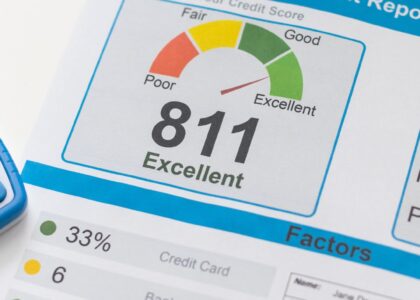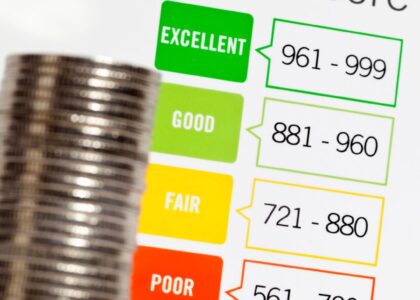Factors That Influence Your Credit Score
Credit scores are determined using factors such as how you handled previous debts and your payment history to determine a consumer’s creditworthiness. A strong credit score can help you save money by allowing you to qualify for lower loan interest rates and higher insurance interest rates.
A poor credit score, on the other hand, may make borrowing more expensive or even impossible. We’ll go over the factors that go into calculating it in this blog article so you know where to focus your efforts if improving your score is important to you.
Most lenders will request a soft or hard copy of your credit history from one of the three main credit bureaus when you apply for a house loan. Each candidate is given a FICO score, which includes five factors into a single figure ranging from 300 to 850.
Calculating Your Credit Score
Payment history, which accounts for up to 35% of your credit score, is the first factor to consider. Revolving, installment, mortgage, student loan, and auto loan are the five types of credit that you can employ. Your credit report will reveal how frequently you pay your rent on time and whether you have any unpaid expenses (such as a water or electricity bill).
Your credit score is influenced by how well you pay your bills. By paying your bills on time, you demonstrate that you are trustworthy and capable of managing your funds. This improves your credit score.
The amount you owe, which accounts for up to 30% of your credit score, is the second factor in determining your credit score. If you want to improve your credit score, one method to do so is to pay off some of your existing loans. Another efficient strategy to accomplish this is to open a few additional credit accounts, which will make your overall amount owing less concentrated because it will be spread out across many lenders.
Your credit score might be influenced by the amount of time you’ve held a credit account. Wait until you’ve paid all your bills before opening a new account to increase this percentage. Also, don’t use all of your credit at once; keep 20-30% available. It is favorable to your credit score to keep a substantial amount of credit open.
You are less likely to make a major purchase and max out your cards if you have more available on your cards. Finally, avoid creating too many accounts at the same time. Let’s say you apply for a lot of credit in a short period of time. In such situation, it may give the impression that you’re desperate or in financial problems, lowering your chances of getting a loan or other form of credit.
The fourth and fifth most important factors that impact your credit score are new credit and debt. It accounts for 10% of your overall score and includes any new debts, such as credit cards, auto loans, and student loans. This factor will effect everyone who takes out a new loan. Each lender has its own set of criteria for how important it is that they have recently taken out a loan or not. Depending on the scenario, this factor might have a favorable or negative impact on a person’s score. Even yet, these queries usually only stay on a person’s credit record for two years unless they apply for another loan by then.
The Consequences of Using a Credit Card
Credit, or a history of repayment, is an essential part of financing anything, particularly a new house. Because credit cards are a valuable and readily available means to develop good credit, banks and lenders frequently issue them immediately. However, if not used correctly, even starting with an excellent score might lead to certain credit mistakes that can affect your history.
Having good credit has several advantages. You should be worried not just about maintaining your good standing, but also about your spouse’s financial management. When you don’t manage your credit properly, it affects your life in numerous ways. When considering the repercussions of poor credit, it’s important to consider both sides of the equation: how credit impacts you and how it affects people around you.
Some people feel that in order to maintain good standing with the company from whom they borrowed money, they merely need to pay the balance on their account when the bill arrives. However, this is a risky way of thinking. A person’s credit score has an impact on more than simply whether or not they can get a loan. It also has an impact on the cost of car insurance, house insurance, and even employment opportunities.





